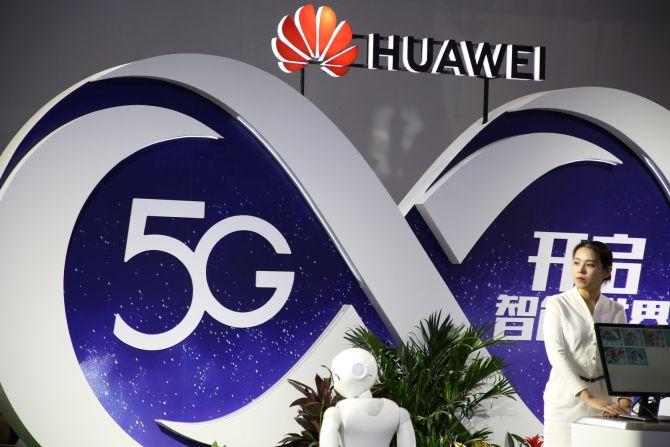Based on industry estimates, telecom companies, including Bharti Airtel, Reliance Jio, Vodafone Idea and BSNL, are expected to invest over $10 billion on buying 5G telecom equipment in the next five years as they transition from non-standalone networks to standalone 5G networks.

After 20 years in India and after having invested over $2 billion, the road ahead for Huawei Technologies has never looked bleaker.
With the government closing the doors to Chinese companies for 5G trials, Huawei is set to miss out on what is the largest upcoming business opportunity for selling telecom gear – the 5G trials.
Based on industry estimates, telecom companies, including Bharti Airtel, Reliance Jio, Vodafone Idea and BSNL, are expected to invest over $10 billion on buying 5G telecom equipment in the next five years as they transition from non-standalone networks to standalone 5G networks.
They will spend a further $3-4 billion on managed access services.
Analysts say that, between 2016-20, telcos put in a capex of over $19 billion (excluding $4 billion on managed services) to build their 4G radio access networks.
While half of the 4G network market share was with Samsung (which built the Reliance Jio network), European players such as Ericsson and Nokia had an over 30 per cent share.
The rest remained with Chinese companies, predominantly with Huawei.
Now Huawei’s market share will fall dramatically in the coming years because it has been excluded from participating in the 5G sweepstakes, an area it had focussed on for the last few years.
Huawei declined to make any comment.
It is true that the company will continue to work with operators to upgrade and expand their 4G networks but this will be a shrinking business.
In fact, even here, some telcos are moving away from Huawei.
Last year, Airtel renewed its contract with Ericsson for expanding its 4G network in eight circles but it replaced Huawei in parts of Tamil Nadu and Rajasthan with Ericsson for its expansion.
Some say, however, that the reason was perhaps that Airtel was unwilling to play the pricing game.
It is also clear that Chinese companies, including Huawei, will not be able to participate in the upcoming over Rs 8,000 crore contract for 4G from state-owned BSNL/MTNL which is still under discussion.
The company is looking at offering the contract to homegrown system integrators.
The problem for Huawei in India is that, unlike in China, it is overly dependent on selling telecom gear for its revenues.
In China, about 54 per cent of its revenues come from the consumer business which mainly consists of mobiles.
In India, however, its mobile handset business is very small.
Huawei is a premium brand and its one mass phone offering, the smartphone Honor, has failed to win much market share in a market dominated by other Chinese brands.
The company also started an enterprise business a few years ago which, while growing fast, very small.
Surprisingly, domestic telecom companies have supported Huawei until very recently when the border clashes with China on the border last year which left numerous Indian soldiers dead, made such support untenable.
Bharti Airtel’s Sunil Mittal, for example, has often said that Huawei’s 5G technology is superior to that of the Europeans.
Other telecom executives say that Huawei has offered long term credit lines from Chinese banks with a low rate of interest which have been very useful.
For perspective, though, it has to be noted that India represents a very small market for Huawei, constituting a mere 0.5 per cent of its global revenues.
It has not even made any money here, the way it has in Thailand and the Philippines.
The one chance to increase this market share – 5G – has vanished.
Moreover, despite the huge challenges it will now face in India in the future, Huawei has a large stake in India because it is a key global hub for R&D.
It has invested $200 million in its R&D centre in Bangalore which is working on some core technologies and is its largest centre outside China.
It employs more than 6,000 employees and is hiring more.
It also runs the largest global service centre from India, handling the running of telecom networks in over 30 countries.
The question is whether these businesses will satisfy Huawei’s appetite after two decades of betting big on India.
Photograph: Reuters











 © 2025
© 2025